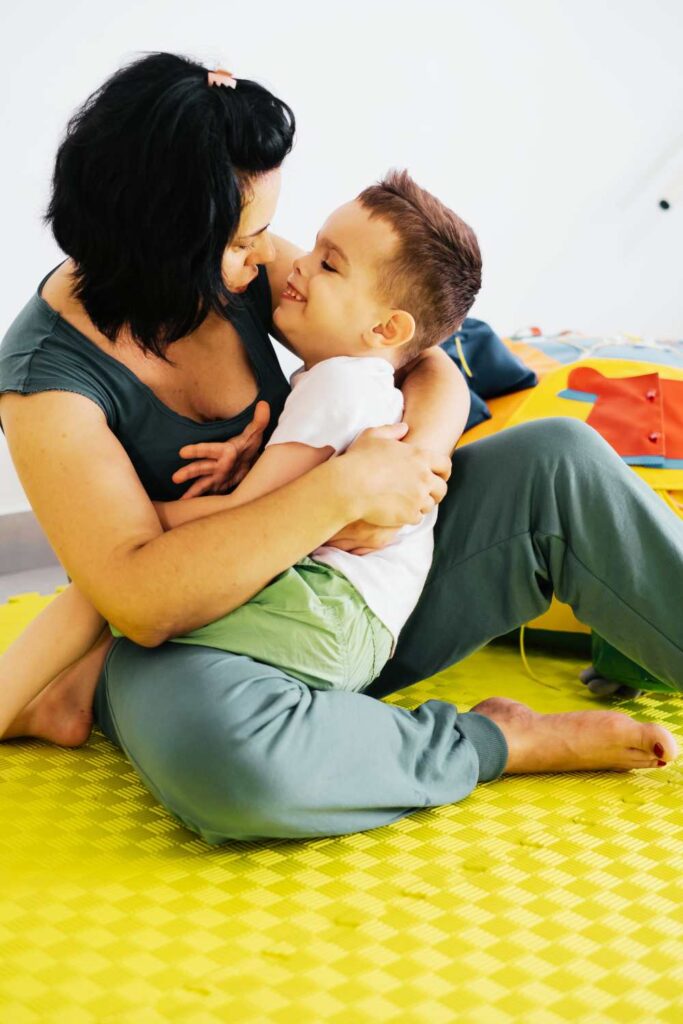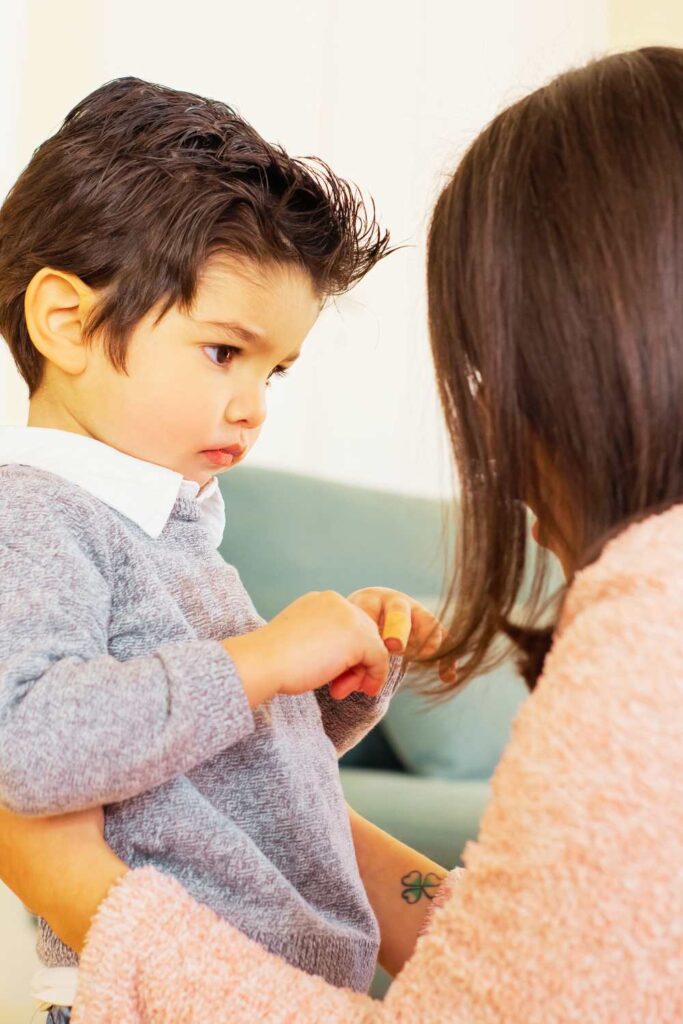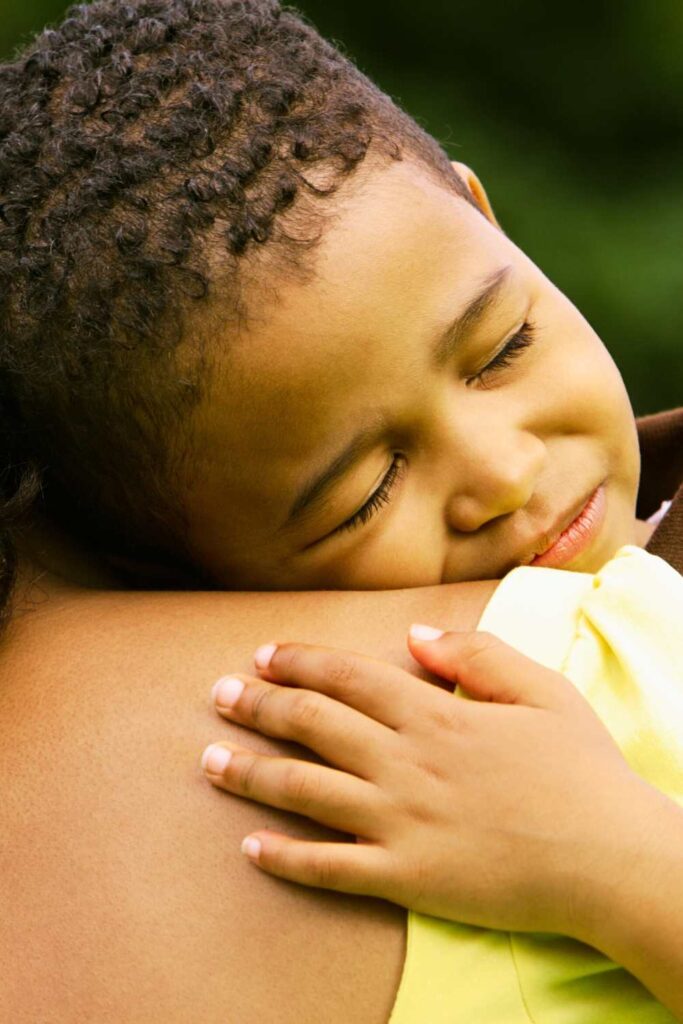In today’s fast-paced and often chaotic world, mindful parenting has become more important than ever.
As parents, we strive to provide our children with the tools they need to navigate life’s challenges and become resilient, empathetic individuals.
But how can we instill these qualities in our children amidst the distractions and pressures of modern life? This is where mindful parenting tips comes in.
By incorporating mindfulness practices into our daily routines, we can create a nurturing and supportive environment that fosters resilience and empathy in our children.
In this article, we will explore ten practical tips for practicing mindful parenting and raising resilient and empathetic children.
From teaching self-care to encouraging open communication, these tips will help you cultivate a strong foundation for your child’s emotional well-being and character development.
So let’s dive in and embark on this journey of mindful parenting tips together, as we empower our children to thrive in an ever-changing world.
What is mindful parenting?
Mindful parenting is the practice of being fully present and engaged in the moment with our children, without judgment or distraction.

It involves cultivating awareness and paying attention to our thoughts, emotions, and actions as we interact with our children.
Mindful parenting encourages us to respond to our children’s needs with kindness and compassion, rather than reacting based on our own triggers or preconceived notions.
It allows us to create a safe and loving space for our children to grow and develop.
Mindful parenting involves incorporating mindfulness practices into our daily routines, such as meditation, breathing exercises, and self-reflection.
These practices help us become more attuned to our own emotions and reactions, enabling us to respond to our children in a calm and compassionate manner.
The benefits of mindful parenting

Practicing mindful parenting has numerous benefits for both parents and children.
When we approach parenting with mindfulness, we are better able to regulate our own emotions and manage stress.
This, in turn, allows us to model healthy coping mechanisms for our children.
Mindful parenting also enhances the parent-child bond. By being present and attuned to our children’s needs, we establish a deep connection and sense of trust.
This connection lays the foundation for open communication and a strong parent-child relationship.
Furthermore, mindful parenting promotes the development of emotional intelligence in children.
When we validate and acknowledge our children’s emotions, they learn how to express themselves in a healthy and constructive manner.
This emotional intelligence helps them build resilience and empathy, essential skills for navigating relationships and life’s challenges.
The importance of empathy in parenting
Empathy is the ability to understand and share the feelings of others.
It plays a crucial role in parenting, as it allows us to connect with our children on a deeper level and respond to their emotions with sensitivity and understanding.

When we practice empathy, we validate our children’s experiences and emotions, helping them feel seen and heard.
Empathy also helps us teach our children about compassion and kindness. By modeling empathy in our interactions with others, we show our children the importance of understanding and supporting those around them.
This cultivates a sense of empathy in our children, enabling them to develop strong relationships and contribute positively to society.
Mindful Parenting Tips
1. Start with self-care

Taking care of your own well-being is essential for practicing mindful parenting.
Set aside time for self-reflection, meditation, or any activity that helps you recharge and find balance.
When you prioritize self-care, you are better equipped to show up fully for your children.
2. Be present
Practice being fully present in the moment when interacting with your children.
Put away distractions such as phones or laptops, and give your undivided attention to your child.

Engage in active listening, and try to understand their perspective without judgment.
3. Cultivate gratitude
Incorporate gratitude into your daily routine by reflecting on the things you appreciate about your child and your role as a parent.
This practice helps shift your focus to the positive aspects of parenting and strengthens your connection with your child.
Tips for fostering empathy in children
1. Model empathy
Show empathy towards your children and others in your daily interactions.
Talk openly about emotions and encourage your child to express their feelings.
By modeling empathy, you teach your child the importance of understanding and valuing emotions.
2. Teach perspective-taking
Help your child understand different perspectives by encouraging them to see things from another person’s point of view.

This can be done through storytelling, role-playing, or discussing different scenarios.
Perspective-taking fosters empathy and helps children develop a broader understanding of the world.
3. Encourage acts of kindness
Inspire your child to perform acts of kindness towards others.
This can be as simple as sharing toys, helping a friend, or expressing gratitude.
Encouraging kindness helps children develop empathy and a sense of responsibility towards others.
Teaching resilience to children
1. Foster a growth mindset
Encourage your child to embrace challenges and view them as opportunities for growth.
Teach them that failure is a natural part of the learning process and that setbacks can be overcome.
This mindset helps children develop resilience and perseverance.

2. Validate emotions
Allow your child to express their emotions without judgment.
Help them understand that it’s okay to feel frustrated, sad, or angry, and provide them with tools to cope with these emotions constructively.
Validating their emotions helps them develop emotional resilience.
3. Teach problem-solving skills
Help your child develop problem-solving skills by involving them in decision-making processes.
Encourage them to brainstorm solutions to challenges they encounter, and guide them in evaluating the pros and cons of different options.
This empowers children to take ownership of their problems and develop resilience.

Creating a mindful and empathetic environment at home
1. Establish routines
Create predictable routines and rituals that provide a sense of stability and security for your child.
Routines help children feel grounded and enable them to develop a sense of self-regulation.
2. Practice active listening
Give your child your full attention when they are speaking.
Maintain eye contact, nod to show understanding, and ask open-ended questions to encourage further conversation.
Active listening fosters empathy and strengthens the parent-child bond.

3. Set clear boundaries and expectations
Establish clear boundaries and expectations for behavior in your home.
Make sure your child understands the consequences of their actions and why certain behaviors are not acceptable.
Consistent boundaries provide a safe and structured environment for your child to thrive.
Mindful parenting techniques for dealing with challenging behaviors
1. Take a pause
When faced with challenging behaviors, take a moment to pause and observe your own reactions.
Notice any judgments or triggers that may be influencing your response.

This pause allows you to respond with mindfulness and compassion, rather than reacting impulsively.
2. Practice self-regulation
Teach your child self-regulation techniques such as deep breathing or counting to ten.
Encourage them to take a break and engage in these techniques when they feel overwhelmed or frustrated.
By modeling self-regulation, you help your child develop emotional resilience.
3. Use positive reinforcement
Focus on praising and reinforcing positive behaviors rather than solely punishing negative behaviors.
his approach helps your child understand what is expected of them and motivates them to engage in positive actions.

Mindful communication with children
1. Use “I” statements
When expressing your feelings or concerns to your child, use “I” statements instead of blaming or accusing.
This helps prevent defensiveness and fosters open communication.
2. Reflective listening
Repeat and validate your child’s thoughts and feelings to show that you understand.
This reflective listening technique helps your child feel heard and encourages them to share more openly.
3. Practice non-judgment
Avoid labeling or criticizing your child’s emotions or experiences.
Instead, validate their feelings and offer support.
Non-judgmental communication creates a safe space for your child to express themselves.

Conclusion: Cultivating resilience and empathy in children through mindful parenting
Mindful parenting is a powerful tool for raising resilient and empathetic children.
By incorporating mindfulness practices into our daily routines and fostering open communication, we create an environment that nurtures emotional well-being and character development.
Through practicing empathy, teaching resilience, and creating a mindful and empathetic environment at home, we equip our children with the skills they need to navigate life’s challenges and thrive in an ever-changing world.
So let’s embark on this journey of mindful parenting together, as we empower our children to become resilient and empathetic individuals who will make a positive difference in the world.
In conclusion, mindful parenting is not just about being present in the moment; it’s about being intentional in our interactions with our children.
By practicing mindfulness and fostering empathy, we can raise resilient and empathetic children who are equipped to navigate the complexities of life.
So let’s embrace the journey of mindful parenting and empower our children to thrive in this ever-changing world.
